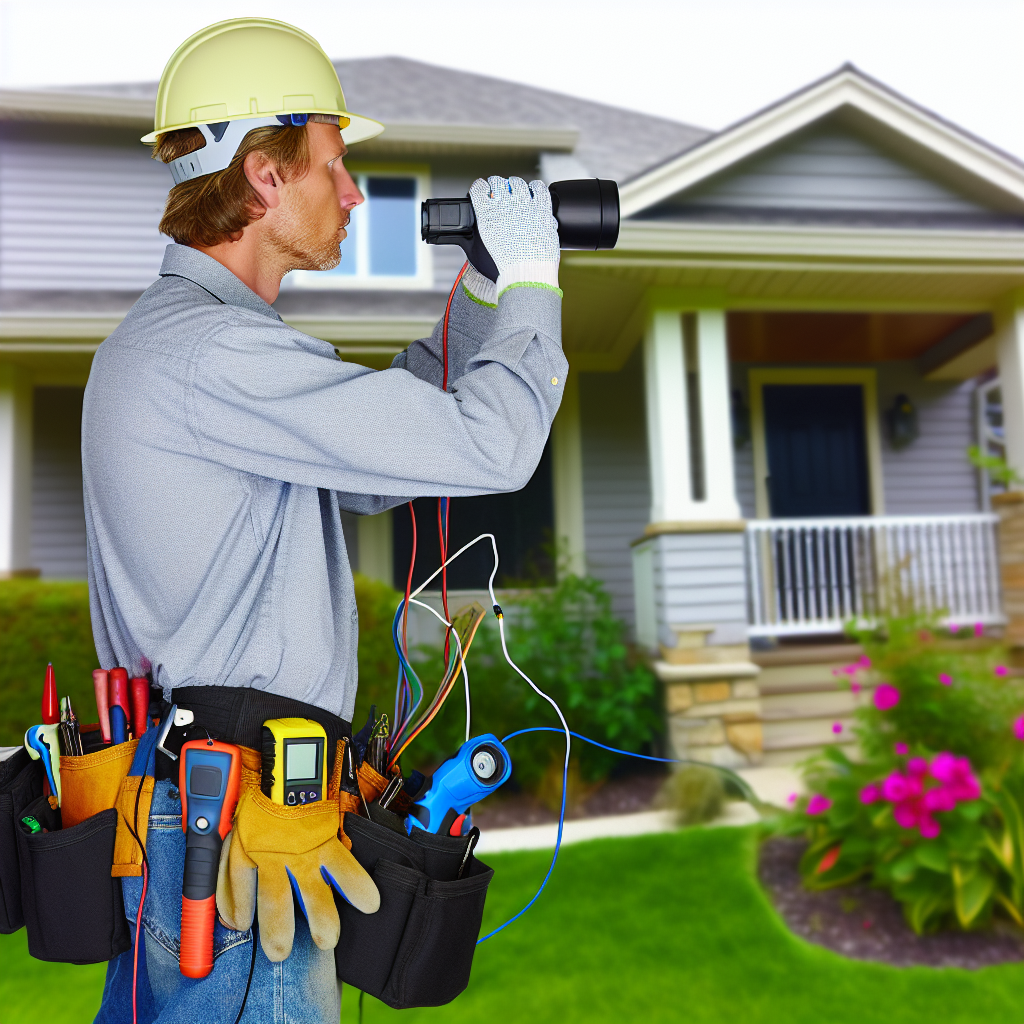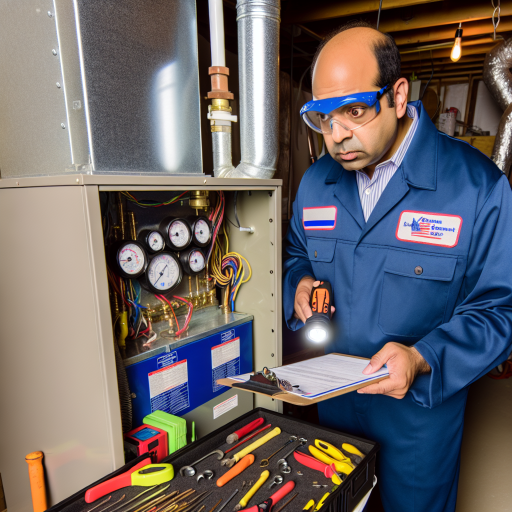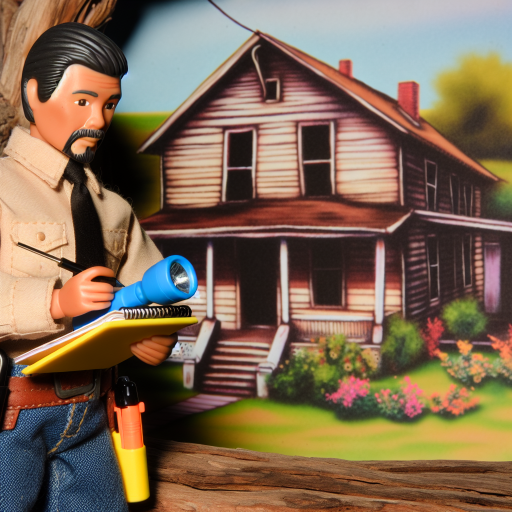Understanding the Importance of Home Inspections for First-Time Buyers
Protecting Your Investment
Buying a home is a significant financial commitment.
Home inspections help you identify potential issues.
This process can save you money in the long run.
With an inspection, you can avoid costly repairs later.
Gaining Peace of Mind
Home inspections provide reassurance about your new purchase.
You gain confidence in the condition of the property.
This allows you to make informed decisions.
Additionally, it reduces the stress of uncertainty.
Negotiating Power
An inspection report can improve your negotiating position.
You can request repairs or price adjustments based on findings.
This strategy can lead to a better deal.
Moreover, it encourages sellers to address issues proactively.
Understanding Property Standards
Home inspections educate buyers on property maintenance.
You learn about the lifespan of various home components.
This knowledge helps in planning future renovations.
Transform Your Real Estate Decisions
Unlock personalized real estate insights crafted just for you. Get actionable advice designed to amplify your success.
Get StartedConsequently, you can budget more effectively.
Meeting Insurance Requirements
Some insurance companies require home inspections.
Having one can simplify the underwriting process.
It may lead to better coverage options and rates.
Therefore, ensuring all requirements are met is crucial.
Importance of Home Inspections for First-Time Buyers
Home inspections are vital for first-time buyers.
They protect your investment and provide peace of mind.
Use this opportunity to make informed choices.
Ultimately, you will feel more confident in your new home.
Detailed Breakdown of a Home Inspection Checklist
Importance of a home inspection is crucial for first-time homebuyers.
This process identifies potential issues before making a purchase.
It offers peace of mind during a significant investment.
Additionally, it helps negotiate better terms with sellers.
Exterior Inspection
Start your inspection from the outside of the house.
Showcase Your Real Estate Business
Publish your company profile on our blog for just $200. Gain instant exposure and connect with a dedicated audience of real estate professionals and enthusiasts.
Publish Your ProfileCheck the roof for missing shingles and leaks.
Examine the gutters for proper drainage.
Look for signs of water damage on the siding.
Assess the foundation for cracks or settling issues.
Next, inspect the windows and doors for proper sealing.
Open and close each to ensure they function correctly.
Also, note any moisture or rot around the frames.
Interior Inspection
Move inside to evaluate the condition of the walls and ceilings.
Check for cracks or signs of water damage in each room.
Inspect flooring materials for wear and tear.
Check the basement for dampness and structural integrity.
Evaluate the attic for insulation levels and pests.
Plumbing System Check
Inspect all plumbing fixtures for leaks or corrosion.
Turn on faucets to check water pressure and temperature.
Examine toilets for proper function and leakage.
Also, look for signs of water damage beneath sinks.
Electrical System Assessment
Check the electrical panel for any outdated wiring.
Ensure all outlets are functional and grounded.
Test light switches and look for flickering issues.
Additionally, verify that the home has adequate circuit breakers.
Heating and Cooling Systems
Evaluate the heating system for age and efficiency.
Check if the air conditioning unit functions properly.
Examine ductwork for cleanliness and damage.
Final Considerations
After completing the inspection, review your findings.
Discuss any concerns with your real estate agent.
Consider obtaining estimates for necessary repairs.
This checklist helps ensure your new home is safe and sound.
Common Issues to Look For During a Home Inspection
Structural Problems
Check for cracks in the foundation and walls.
Examine the roof for missing shingles or signs of sagging.
Look for evidence of water damage in the basement or crawlspace.
Showcase Your Real Estate Business
Publish your company profile on our blog for just $200. Gain instant exposure and connect with a dedicated audience of real estate professionals and enthusiasts.
Publish Your ProfileYour inspector will assess the overall stability of the structure.
Electrical System Issues
Inspect outlets and switches for any signs of wear or damage.
Ensure the circuit breaker panel is properly labeled and accessible.
Check for any exposed wiring that may pose a safety hazard.
A professional can validate if the system meets current code standards.
Plumbing Concerns
Look for leaks beneath sinks and around fixtures.
Test water pressure and check for signs of corrosion in pipes.
Examine the water heater for rust or leaks.
Ask your inspector about any potential plumbing upgrades needed.
HVAC System Condition
Request service records for the heating and cooling systems.
Inspect air filters and ducts for dirt and debris buildup.
Test the thermostat to ensure proper functioning.
A reliable inspector can advise on the unit’s lifespan.
Pest Infestations
Look for signs of pests, such as droppings or damage to wood.
Inspect for evidence of termites, rodents, or other pests.
A thorough inspection includes checking for entry points.
Seek professional pest control recommendations if needed.
Exterior Issues
Inspect siding for damage or signs of rot.
Check gutters and downspouts for clogs and proper drainage.
Look for cracks in the driveway or walkways that could pose hazards.
Evaluate the landscaping for proper grading away from the house.
Find Out More: The Ultimate Guide To Choosing A Realtor For First-Time Homebuyers
Hiring a Qualified Home Inspector
Importance of a Qualified Inspector
Choosing a qualified home inspector is crucial for first-time buyers.
A qualified inspector can identify hidden problems in a home.
This can save buyers from unexpected expenses in the future.
Moreover, their expertise offers peace of mind during the buying process.
What to Look For
First, check the inspector’s qualifications and certifications.
Look for certifications from recognized organizations like ASHI or InterNACHI.
Experience is important, so consider inspectors with several years in the field.
Additionally, seek reviews from previous clients to gauge reliability.
Showcase Your Real Estate Business
Publish your company profile on our blog for just $200. Gain instant exposure and connect with a dedicated audience of real estate professionals and enthusiasts.
Publish Your ProfileQuestions to Ask Potential Inspectors
When interviewing potential inspectors, ask specific questions.
Inquire about their inspection process and what it includes.
Ask how long the inspection typically takes and whether they provide a report.
Check if they have any special training in areas relevant to your home.
Understanding Fees and Costs
Home inspection fees can vary based on location and home size.
Generally, expect to pay between $300 and $500 for a thorough inspection.
Make sure to ask for a detailed breakdown of the fees.
This transparency helps prevent unexpected costs during the transaction.
After the Inspection
Once the inspection is complete, review the report carefully.
Discuss any concerns or findings with your real estate agent.
Consider obtaining quotes for repairs on any significant issues found.
A skilled inspector will also provide recommendations for specialists.
Uncover the Details: Understanding Property Taxes For First-Time Homebuyers In The USA
The Role of Home Inspections in Negotiating Purchase Agreements
Understanding Home Inspections
A home inspection provides crucial information about a property’s condition.
It helps buyers make informed decisions before closing a deal.
Additionally, inspections reveal repair needs that may not be visible initially.
Importance in Purchase Agreements
Home inspections can significantly impact purchase agreements.
They often lead to negotiations on price adjustments or repair requests.
When issues arise, buyers can use the inspection report as leverage.
Using Inspection Results for Negotiation
Buyers should review inspection reports carefully.
Identifying critical repairs can strengthen their negotiation stance.
For instance, structural issues may warrant a lower purchase price.
Negotiating repairs before finalizing the sale can save money in the long term.
Timing of the Inspection
Scheduling the inspection promptly is vital.
This ensures any problems are addressed early in the buying process.
Buyers should include a home inspection contingency in their offers.
This clause allows them to back out if significant issues are found.
Working with Professionals
Choosing a qualified home inspector is essential.
Reputable inspectors provide thorough reports that buyers can trust.
Home buyers should also consider consulting real estate agents for recommendations.
Showcase Your Real Estate Business
Publish your company profile on our blog for just $200. Gain instant exposure and connect with a dedicated audience of real estate professionals and enthusiasts.
Publish Your ProfilePreparing for Negotiations
Buyers should gather all documentation from their inspections.
Presenting clear evidence helps facilitate productive negotiations.
Furthermore, remaining flexible can often yield better results.
Buyers should prioritize issues based on their severity and repair costs.
Agreements After Negotiations
After negotiations conclude, all agreements should be documented.
This includes any repairs that the seller agrees to make.
Ensuring all terms are clear prevents misunderstandings later.
Ultimately, a successful negotiation benefits both parties involved.
Delve into the Subject: Home Inspection Checklist For Examining Windows And Insulation Quality

Top Tools and Resources for First-Time Homebuyers Preparing for Inspections
Essential Inspection Tools
First-time homebuyers benefit greatly from having the right tools.
A quality flashlight helps in examining dark spaces.
A moisture meter detects water damage or leaks.
Other useful tools include a tape measure for measuring rooms.
Additionally, a digital camera allows buyers to document concerns.
Online Resources
Many websites offer comprehensive inspection checklists.
Inspectopia provides easy-to-follow guidelines and resources.
The American Society of Home Inspectors has valuable articles.
HomeAdvisor connects buyers with qualified inspectors.
Books and Guides
Books on home inspection can enhance understanding.
The Complete Guide to Home Inspections is a highly recommended read.
This book covers both practical tips and technical details.
Another useful resource is the Home Inspection Manual.
Professional Assistance
Hiring a certified home inspector is crucial.
Investigate local home inspection companies first.
Read reviews to gauge the quality of service.
Ask for recommendations from friends or family.
Supportive Apps
Various applications can simplify the inspection process.
HomeGauge allows buyers to create and track home inspections.
The Zillow app can help compare properties and gather data.
State-Specific Resources
Be aware of state-specific homebuyer assistance programs.
Showcase Your Real Estate Business
Publish your company profile on our blog for just $200. Gain instant exposure and connect with a dedicated audience of real estate professionals and enthusiasts.
Publish Your ProfileMany states offer grants and loans for first-time buyers.
Housing and Urban Development (HUD) provides local resources.
Visit your state’s housing authority website for specifics.
You Might Also Like: How To Plan For Long-Term Costs As A First-Time Homebuyer In The USA
Post-Inspection Steps: Interpreting the Inspector’s Report and Taking Action
Understanding the Inspector’s Report
After the inspection, you will receive a detailed report from the inspector.
This document outlines the home’s condition in various areas.
Pay special attention to the summary section first.
It highlights major issues in simple terms.
Next, read through the detailed findings thoroughly.
Each section of the report may cover different components.
For instance, it might address plumbing, roofing, and electrical systems.
Take notes on areas that concern you most.
Identify any issues requiring immediate attention.
Prioritizing Repairs
Once you understand the report, prioritize the repairs needed.
Group issues by urgency: immediate, moderate, and low priority.
Urgent issues include anything that impacts safety.
Examples are faulty wiring or significant water damage.
Moderate concerns might be aging appliances or minor leaks.
Low-priority items could be cosmetic concerns.
Address urgent items first; don’t delay fixing safety hazards.
Next, consider budgeting for moderate repairs within your timeline.
Consulting Professionals
Engage with contractors for assessment on significant repairs.
Get multiple quotes to compare pricing and services.
Ensure each contractor has the necessary licenses and insurance.
Ask for references from previous clients.
This will give you confidence in their work quality.
After review, select a contractor who fits your budget and timeline.
Schedule the repairs promptly to address urgent issues.
Negotiating with the Seller
Use the inspector’s report as leverage in negotiations with the seller.
Request repairs or ask for credit towards closing costs.
Showcase Your Real Estate Business
Publish your company profile on our blog for just $200. Gain instant exposure and connect with a dedicated audience of real estate professionals and enthusiasts.
Publish Your ProfileBe specific about the repairs needed based on the report.
Keep communication polite yet assertive during negotiations.
This approach can lead to favorable terms for you.
Ensure any agreed-upon repairs are documented in your contract.
Preparing for Move-In
Once repairs are made, you should prepare for your move.
Consider hiring professionals for the moving process.
Also, check that all repairs are completed as per the agreement.
Test any new systems to confirm they work adequately.
Finally, change locks and review safety features in your new home.
Taking these actions keeps your transition smooth and secure.
FAQs About Home Inspections
What is a home inspection?
A home inspection is a thorough examination of a property’s condition.
It typically includes an evaluation of the structure, systems, and overall safety.
Home inspectors provide detailed reports for the buyers.
Why do I need a home inspection?
A home inspection helps identify potential issues before purchase.
It can uncover hidden problems that may not be immediately obvious.
Additionally, it provides leverage for negotiations with the seller.
How does a home inspection work?
A home inspector examines the property systematically.
They assess the roof, plumbing, electrical systems, and more.
After the inspection, they present a detailed report with findings.
How long does a home inspection take?
Most home inspections take around two to three hours.
The duration depends on the property’s size and condition.
It’s essential to be present during the inspection to ask questions.
What should I do if issues are found?
If the inspector finds issues, review the report carefully.
Discuss the findings with your real estate agent for advice.
You may choose to request repairs or negotiate the price.
How much does a home inspection cost?
The cost of a home inspection varies by location and property size.
On average, expect to pay between $300 and $500.
It’s an essential investment in your future home.
Can I attend the home inspection?
Yes, attending the home inspection is highly recommended.
You can gain insights directly from the inspector.
Showcase Your Real Estate Business
Publish your company profile on our blog for just $200. Gain instant exposure and connect with a dedicated audience of real estate professionals and enthusiasts.
Publish Your ProfileThis opportunity allows you to ask questions on-site.
What if the inspector is a referral?
Many real estate agents recommend trusted inspectors.
However, you can always choose your inspector for peace of mind.
Ensure the inspector is licensed and experienced in your area.
Are home inspections required?
Home inspections are not legally required in many states.
However, they are strongly advised to protect your investment.
Most lenders will recommend or require a home inspection.
Additional Resources
Buying a Home | HUD.gov / U.S. Department of Housing and Urban …
Smart Homebuying Podcast: Formally knows as The First Time …




